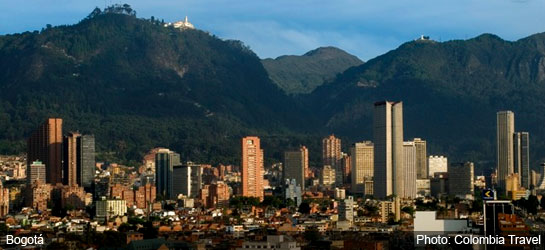
The Economic Freedom of the World (EFW) 2011 Annual Report ranked Colombia as the 101st most economically free country out of 141.
The report, published by Canadian public policy think tank the Fraser Institute, examined 141 countries representing 92% of the world’s population. The average for all the countries was 6.64 on a scale of ten; Colombia scored 6.21.
The EFW index is designed to measure the extent to which the institutions and policies of a nation protect individuals and their property from aggression by others and facilitate trade through low levels of regulation and taxation.
In order to achieve a high ranking, “a country must provide secure protection for privately owned property, even-handed enforcement of contracts, and a stable monetary environment. It must also keep taxes low, refrain from creating barriers to both domestic and international trade and rely more fully on markets than political processes to allocate goods and resources.”
The index ranks countries on five major areas; size of government, legal structure, access to stable currency, or “sound money”, freedom to trade internationally, and regulation of credit labor and businesses.
In relation to area one – size of government, expenditures, taxes and enterprise – the think-tank stated “Economic freedom is reduced when government spending increases relative to spending by individuals, households and businesses and government-decision making is substituted for personal choice.”
Therefore, countries with proportionally low levels of government spending, a smaller government enterprise sector, and lower marginal tax rates earn the highest ratings in this area. In this area, Colombia ranked 84th and scores 6 out of 10.
Area two looked at legal structure and protection of security rights. According to the Fraser Institute “Security of property rights protected by the rule of law provides the foundation for both economic freedom and the efficient operation of markets. When individuals and businesses lack confidence that contracts will be enforced and the fruits of their productive efforts protected, their incentive to engage in productive activity is eroded.”
This is the area in which Colombia scored the lowest (4.4 out of ten). It was ranked 108. During the armed conflict paramilitaries illegally seized vast tracts of land, displacing the owners from their properties. The Santos administration is currently undertaking a land restitution program to return land to the rightful owners.
Area three is related to access to “sound money”. “Sound money is essential to protect property rights and, thus, economic freedom. Inflation erodes the value of money held in monetary instruments,” said the think-tank. Here Colombia ranked 76th and scored 8.1 out of 10, the highest score of the five areas.
Area four looks at freedom to trade internationally. “In order to get a high rating in this area, a country must have low tariffs, a trade sector larger than expected, easy clearance and efficient administration of customs, a freely convertible currency, and few controls on the movement of capital,” according to the Fraser Institute. In this area Colombia scored 5.7 out of ten and ranked 120th.
Finally area 5 is concerned with regulation of credit, labor and business. It “focuses on regulatory restraints that limit the freedom of exchange in credit, labor, and product markets.” The Institute is not in favor of minimum wages nor conscription.
Colombia has a set monthly minimum wage of approximately $300 and compulsory military service for males once they reach the age of 18. Colombia scored 6.9 out of ten and ranked 72.
Colombia’s 101 place ranking places it just behind Bosnia & Herzegovina but one place ahead of South American heavy-weight Brazil.

